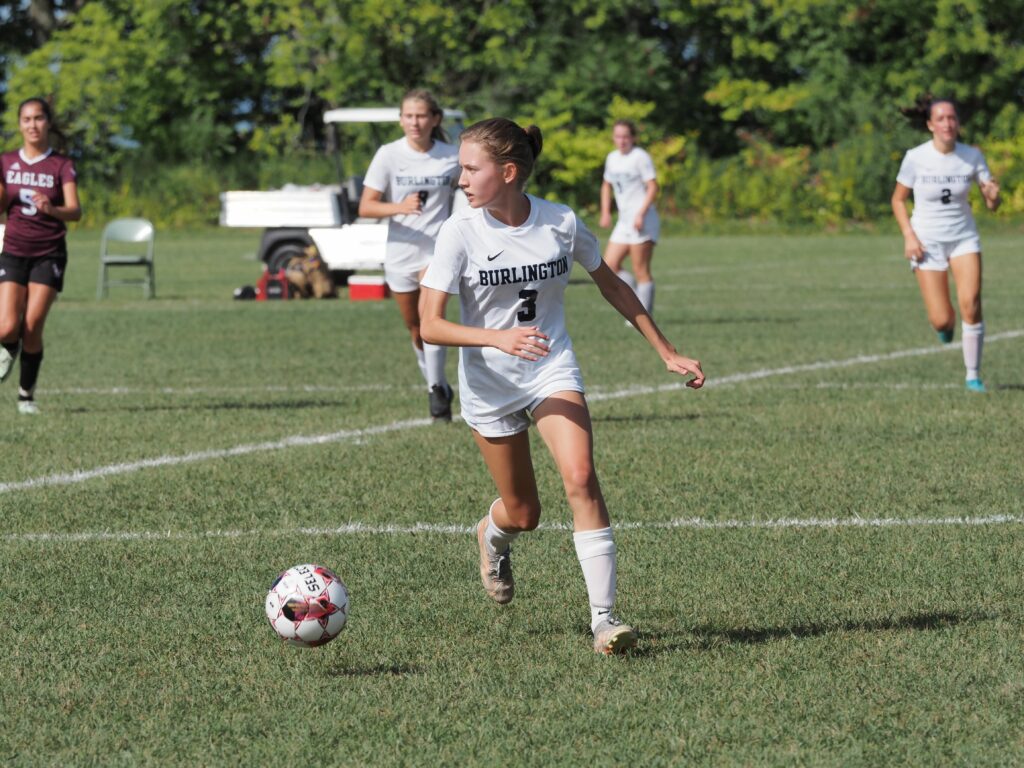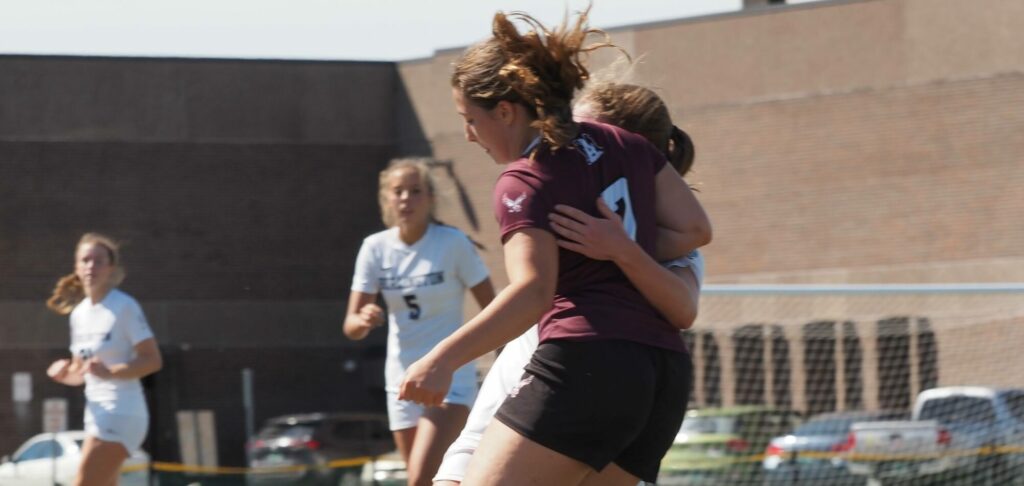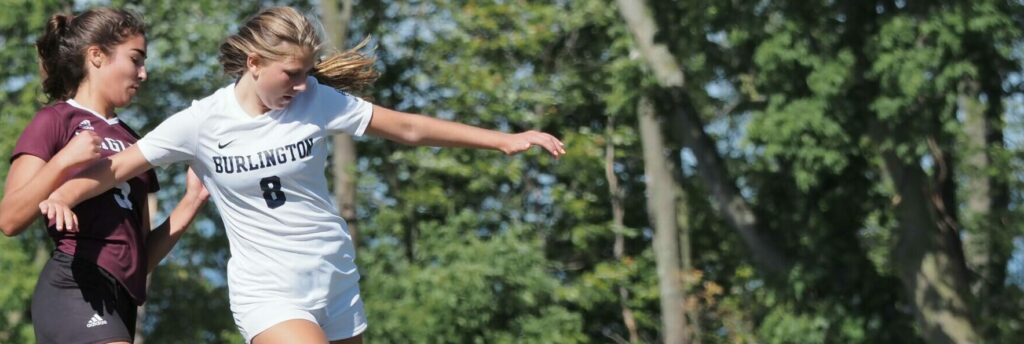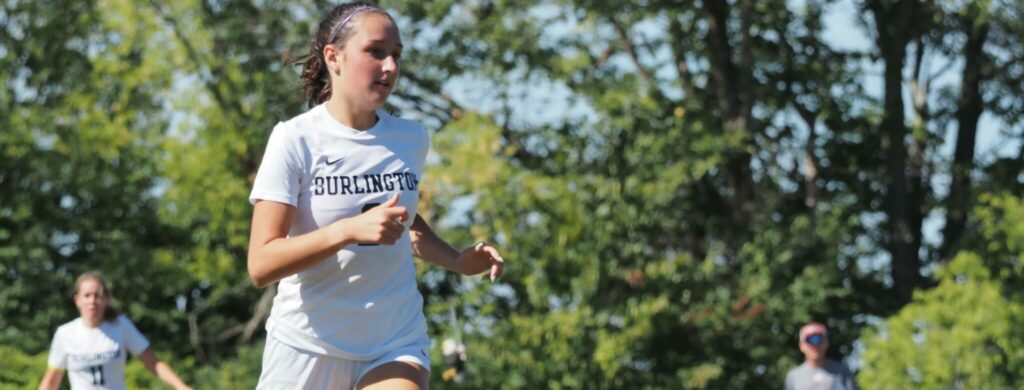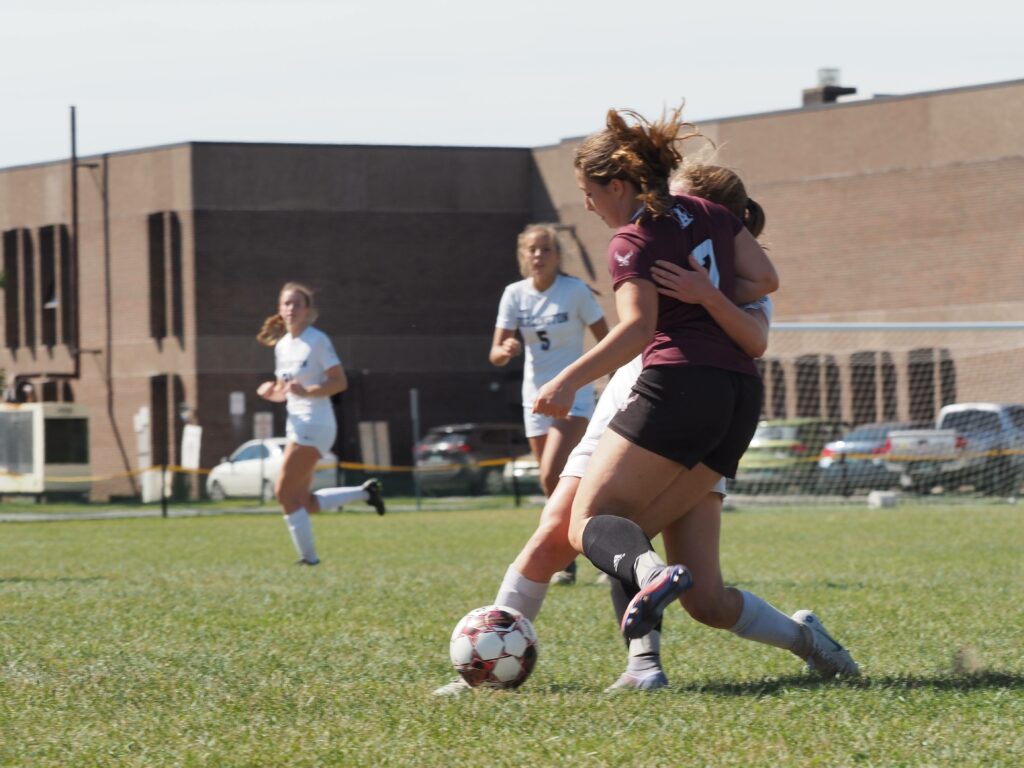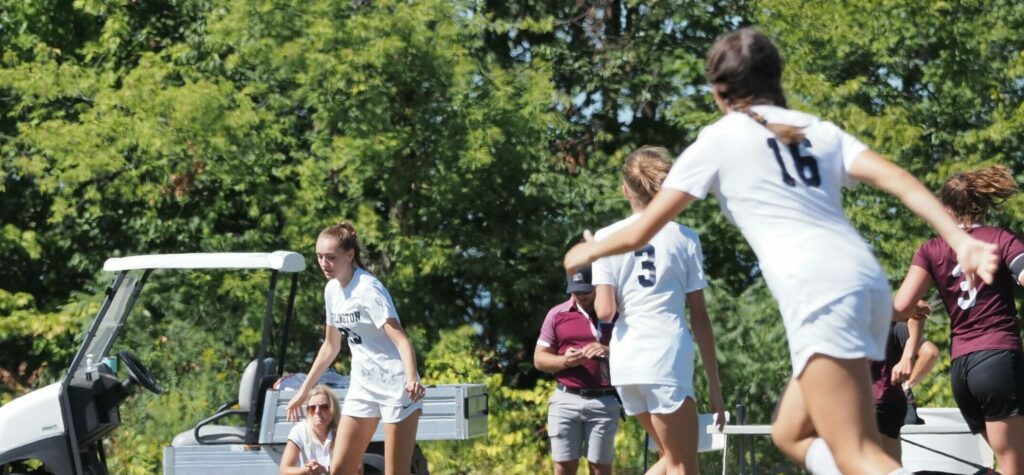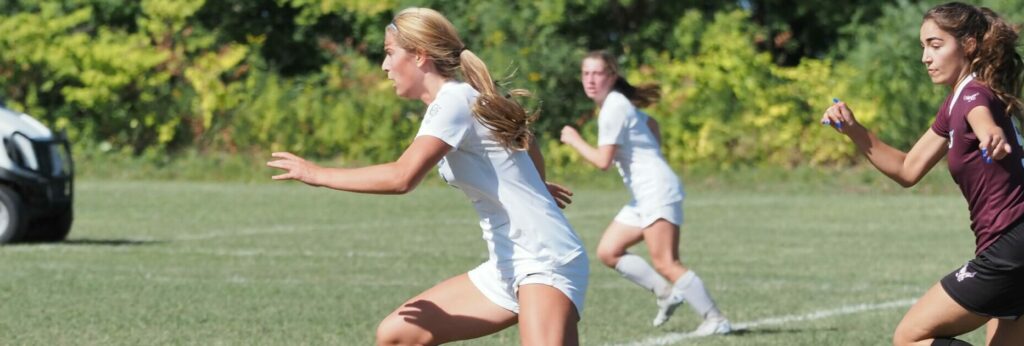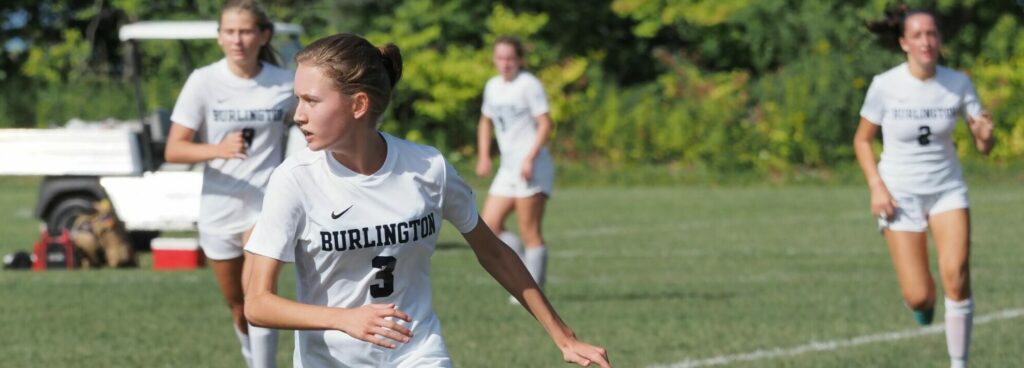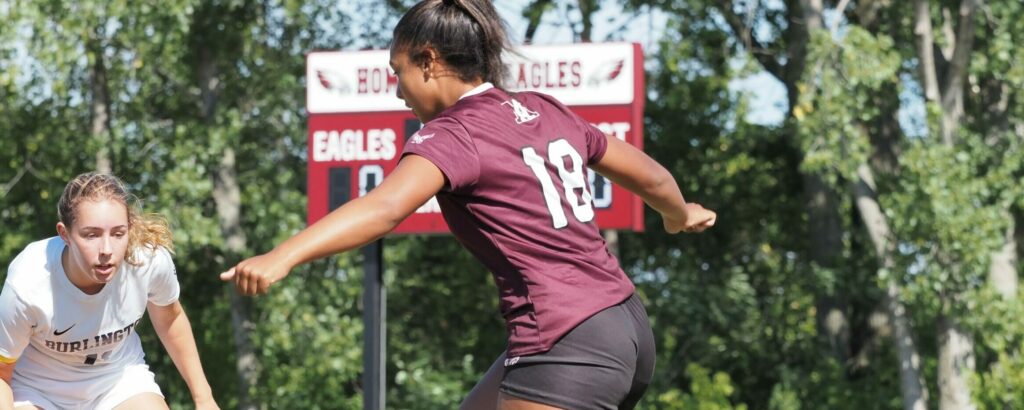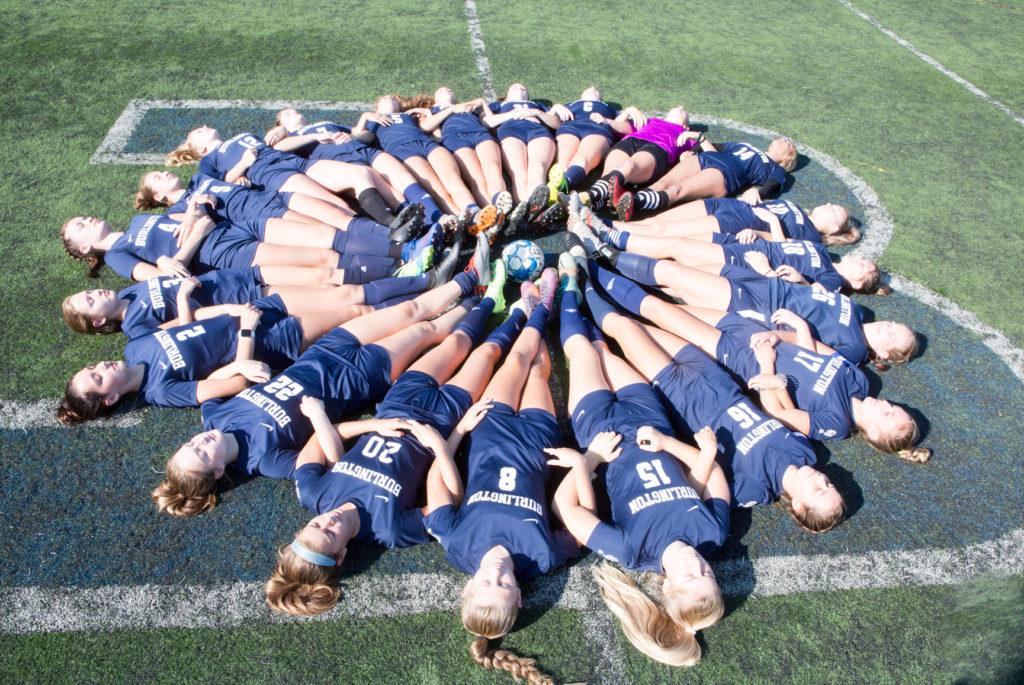BHS Girls Soccer News
AMELIA DION
Friday, September 29, 2023
Coaching Staff
-
Remy-Brice Basinga
JVB Girls Soccer Head Coach
Email Remy-Brice Basinga -
Jeff Hayes
Varsity Girls Soccer Head Coach
Email Jeff Hayes -
Paulina Valentine
Varsity Girls Assistant Soccer Coach
Email Paulina Valentine -
Al Karam
Varsity Girls Assistant Soccer Coach
Email Al Karam -
Kate Mastrantone
JVA Girls Soccer Head Coach
Email Kate Mastrantone
- -
Cuts Policy
One of the most difficult and unpleasant tasks of coaching is making “cuts”. Before deciding to be a candidate for the BHS Girls Soccer Program, we ask that you and your parents be prepared to accept the possibility that you may not be selected as a member of the squads and to be assured that each individual candidate was given an equal and fair assessment during the tryout/selection process and that no “cut” was determined lightly.
No candidate, including seniors or players who have played on the teams previously is guaranteed a spot on the team’s roster. Roster selection is based on the team’s current and future year’s goals and specific needs as well as the individual’s ability, attitude and work ethic.
The coach’s decision regarding all cuts is final although eligible candidates cut from the Varsity squad may be given the opportunity to try out for the JV squad and will be notified accordingly. Any freshmen or sophomore being considered for the Varsity squad will be given the option to play on the JV squad if, playing varsity, means a decrease in playing time. Varsity players eligible to play JV may be moved down at any time if coaches deem they are not seeing enough playing time on Varsity.
All candidates cut from the program will be spoken to personally, by a coach, to ensure that the candidate is given immediate and informative feedback as to the reasons behind the decision. At this time candidates are encouraged to ask coaches for advice as to how to better their abilities in order to grow as a player
The Final Squad Selection
During the 3rd session and once the final cuts and roster have been completed and finalized, coaches will speak with each player individually as to their role on the team. This discussion will include, but may not be limited to, playing time, field position, starting position etc. Coaches will also address, if any, concerns with the athletes conditioning, skills or work ethic/attitude. The players are encouraged to, during this one on one time to speak with the coach about her individual goals and any concerns she may have.
Athletic Philosophy
Athletics provide an ideal forum for a young adult to experience some of life’s greatest lessons. Learning opportunities stem not only from being part of a team but also from disappointment when the team’s needs are different from what had been hoped for by the individual. Our team strives to win, but emphasis will be placed on effort, improvement, respect for coaches and their decisions, teammates and their roles, learning to win graciously and losing with dignity. We want our athletes to have a rewarding and enjoyable experience while still maintaining the structure and dedication required by a varsity level squad.
One of the most important aspects of participation on a team is commitment. As such, we respectfully request that all student- athletes who accept to participate on our team, along with their parents, be prepared to commit to the team for all practices and games for the duration of the season.
It must be understood that any significant time missed by the student athlete can affect team performance and chemistry.
Student athletes who miss practice or games can and likely will have their playing time adjusted.
Coaches must be made aware in advance of any missed practice or game, and the reason for any athlete being absent or late. The coaching staff will determine team practice and game attendance policies and consequences for infractions.
Participation in sports is a privilege that requires students to represent Burlington High School in a respectful and responsible manner. Unsportsmanlike behavior towards other athletes, coaches or officials will not be tolerated.
Playing Time
The coaching staff makes decisions regarding individual playing time with respect to the team’s needs and best interests. At the varsity level, winning is emphasized more strongly, and playing time is not guaranteed to every member of the squad. The individual’s ability, attitude, work ethic and the team’s specific needs or game situation will determine playing time.
All players on the team are expected to be a positive influence on their teammates, whether they are on the field or off. Players not on the field can provide invaluable support to the field players by always having a supportive attitude, respecting everyone’s role on the team and demonstrating good sportsmanship to coaches, officials and other players.
An initial role for each individual player will be determined and players will be made aware of their role during pre-season. Players who choose to commit to the team understand that this role is the coach’s initial assessment for the team’s needs and how a player best fits in to those needs. In no way, will this determine an individual’s status for the entire season. All players are expected to continue to give 100% at practices, stay in good mental and physical health and keep a positive attitude.
Any student athlete disappointed in her role or playing time, should speak directly to the coaching staff in order to express her concerns and garner feedback to try and achieve her goals. Before, during or after games is not the time to discuss individual issues such as playing time and team role. Therefore, an athlete should make arrangements to speak privately with the coach at a mutually agreed upon time.
“Don’t visualize beating the keeper, visualize destroying the keeper.”
– Steven Gerrard (Liverpool)
Coaching Staff
The coaching staff puts a lot of time and effort into determining the right procedures,drills, practice schedules, player roles and playing time, in order for the team to succeed in a competitive league. The coaches work hard on behalf of the athletes by trying to provide each member of the team an environment where they can learn, improve and prosper. The athletes may not always agree with coaching practices or decisions but must respect that these decisions are in the best interest of the team as a whole and are based on factors that include much more, than just an individual players needs.
Negative conversations on the sidelines, criticism of coaches and unsportsmanlike behavior can have a detrimental affect on all involved, and can negatively impact the success of the team and the enjoyment of each team member. Being respectful of the coaching decisions and other player’s roles within the team is essential for providing the mental strength to compete and succeed in this league. Every member of the squad regardless of their role has a responsibility to put the team first before their individual needs.
“Give the opposition more than one reason to stare at your feet.”
– Lionel Messi (FC Barcelona)
Physical Eligibility
Athletes are expected to maintain a certain physical standard while participating as part of the team. Pre-season conditioning is expected to continue throughout the season, and athletes are expected to stay in good physical condition in order to be able to compete at the high-level Division 1 demands. Coaches would be happy to help with any particular conditioning programs that will help an athlete to succeed. Nutrition also has a big impact on the performance of athletes throughout the season. **See end of manual for Nutrition information.
All injuries occurring while the athlete is participating in athletics must be reported to a coach and athletic trainer. Permission must be obtained from a trainer or physician before an athlete will be allowed to resume participation. REMEMBER: Ice and rest is essential after practices and games and is NOT reserved solely for injuries!
Academic Eligibility
All athletes participating in athletic programs MUST meet academic requirements as outlined in the BHS Student Handbook.
The Coaching staff takes academics very seriously and expects all athletes to take it seriously as well. Any student struggling with their grades will be expected to put extra effort into their academics FIRST. Sports are not an acceptable excuse for a student not completing work or failing classes and practices and games should be missed if a student needs extra academic help or is expected in call-back. BHS prides itself on the Student-Athlete concept.
Code of Ethics for Parents of Athletes
- Encourage your daughter – be enthusiastic – show school spirit.
- Maintain a positive attitude whether the team is winning or losing and never criticize a player or a coach for a loss.
- Parents as spectators are expected to exhibit good sportsmanship during a game. Please refrain from being insulting or combative with coaches, referees or players.
- Respect the judgment, strategy and policies of the coach and support them to your daughter. Criticizing coaches and the way they run the team, does nothing for the moral of the team or the individual players.
- Support the team with sponsored events, such as fundraising, homecoming etc. Team spirit is ALWAYS a good motivator!
“Only when you have a true feel for the ball can you truly make it do what you want.”
-“Kaka” (AC Milan)
Parent/Coach Communication Guidelines
High school is a time for young adults to make decisions and to learn lessons that will help them to grow and develop into well- rounded adults ready for what the world has to offer.
Unfortunately not all decisions or lessons will have a positive result and dealing with hurt feelings is part of dealing with life. While we hope that parents will support the students in our program whatever the result, we understand that decisions made within the coaching staff will not always be supported or understood by the athletes or their parents. In realization that there are times when a parent does need to communicate with the coach, the following is policy for this medium:
Issues inappropriate to discuss with coaches:
- Playing time
- Team strategy
- Play calling
- Other student athletes
- Practice plans, training programs or drills
As parents, our first inclination is to make things better and take away a child’s pain. It often becomes very difficult to distance yourself when children do not play as much as they or you had hoped. Coaches are professionals and make decisions based on what they believe is in the best interest of the program and all students involved. Please keep in mind that coaches think beyond the current year as well and are always developing players and the program for the future.
These issues must be left to the discretion of the coaches and only the coaches. Under no circumstances should a parent ever call a coach at home to discuss these issues. Also, under no circumstances should a parent approach a coach before, during or after a practice/game.
Procedure for discussing concerns with a coach:
- The student-athlete should meet with the coach first to discuss and attempt to resolve the issue.
- If resolution is not reached, the parent should call the coach to set up an appointment between the coach, the athlete and the parent.
- If a member of the coaching staff cannot be reached, call the Athletic Director and a meeting will be orchestrated for you.
**All concerns will be met with an open and objective mind but results may not always change.
School Transportation
Student athletes who travel to and from games on the bus are expected to act in a mature and responsible way. Nothing is to be thrown around the bus or from the windows. Yelling disrespectful remarks or profanities from the bus window will not be tolerated. Respect is to be given to both the driver and the supervising coach who is traveling with the athletes, whether that coach is varsity or JV. Athletes are expected to represent Burlington High School in a respectful manner at ALL times. Athletes not conforming to transportation policies may have their playing time affected or may be required to fulfill “consequences” dictated by the coaches.
Girls Soccer Program Policies
- At least 1 practice during the season will be captain developed and run practices. Practice formats will be pre- approved by the coaching staff.
- Updating, as needed, to both pre-season and current season team manuals, to keep student athletes and parents informed of any changes to team/school policies, protocols and what is expected.
- Scheduled, organized practices with expectations by the coaching staff explained up front and enforced with full and open dialogue. Consequences will be given to any student athlete who does not adhere to these expectations.
- Fundraising events and team outings to help enforce school spirit and team bonding.
- Regular captain/coaches meetings to discuss team moral, strategy, fundraising, team events, opponents, games and practices sessions etc. Chosen captains will be provided with a format for dealing with player issues and how and when to bring said issues to a member of the coaching staff.
Nutrition (eating the proper way for athletes)
What you eat can have a big effect on how you perform; eating right can certainly improve your game. With good nutrition, young players can discover a whole new level of performance. A good soccer diet can also help prevent injury, reduce recovery time between games, and create a lifetime of good eating habits.
- Make sure you eat a good healthy meal 2 to 3 hours prior to playing. The meal should be substantial but not heavy.
- Use the food pyramid to make your choices. Ensure that you have a heavy emphasis on carbohydrates (55 to 60 percent).
- Refuel post game, nutritious foods speed muscle recovery.
- Choose carefully, fruits, whole grains and easy to digest foods (not fried) are the best. Stay away from milk products close to game time. Candy, ice cream and fast food is better left for after a game.
- Proper hydration is the most crucial aspect of sports nutrition. Remember fluids!!! Sipping water is better than gulping it. It is easier to absorb into the body for hydration when delivered slowly. Hydration is optimal when urine is clear. Drink plenty of water the day before the game and the day of, but stop 1.5 hours prior to game. Start hydration again, by taking a few sips 10-30 minutes before the game.
- Be creative and organized. Pack non-perishables in your soccer bag, so that you have a constant supply of snacks such as pretzels, crackers or sports bars for games and practices.
- Make sure you give your food enough time to digest before the game; this can help eliminate cramping and bloating. Easy to digest foods are recommended.
Good game day food choice ideas:
Breakfast: Eggs, bagel with peanut butter, fruit, high fiber cereal and milk.
Lunch: Salad with chicken, fruit bowl, crackers and cheese.
Snack: Animal crackers.
Dinner: Pasta (small amount), chicken salad with light dressing on wheat bread.
